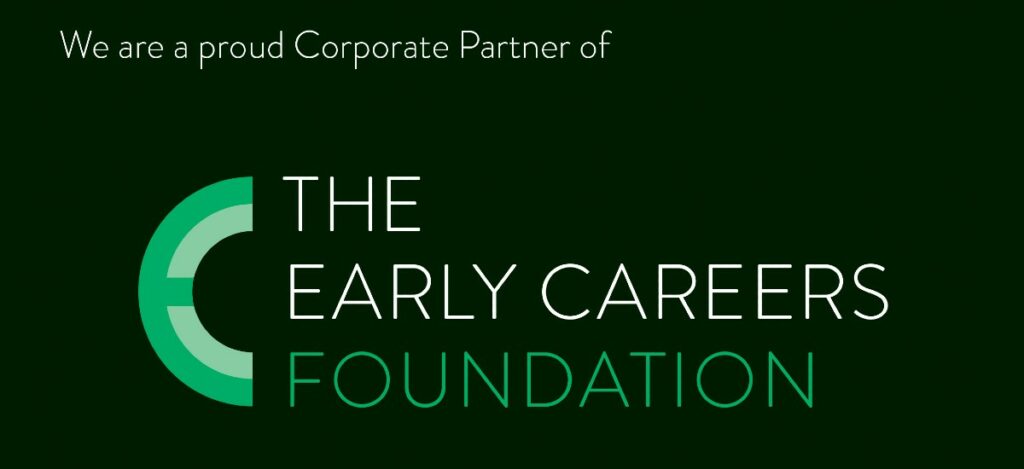Sir Peter Bazalgette is one of the most influential figures in the UK’s creative industries.
As the former chairman of Endemol UK and creative director of Endemol Group Worldwide, he was responsible for some of the most successful and recognisable television shows of the past 25 years, including Big Brother, Ready Steady Cook, Ground Force and Changing Rooms.
Sir Peter, who was also chairman of Arts Council England and non-executive chairman of ITV, was recently appointed as the new chancellor of the University of the West of England (UWE Bristol).
In an interview with Dan Martin, he discusses his career, the support needed from the new government to grow the UK’s creative industries, how to improve the sector’s diversity, and why he has taken on the role of UWE Bristol’s new chancellor.
For an extra insight, read to the end to discover Sir Peter’s favourite TV show of all time!
Sir Peter Bazalgette officially took up his role as chancellor of UWE Bristol at the university’s graduation ceremonies in July, which were held for the first time at Bristol Beacon following a new partnership between the two organisations.
“Until 1955, there was only the BBC, and until 1982, there was only the BBC and ITV. Then there was Channel Four, and then Channel Five came along in the 90s. So even by the 1990s, there were very few channels. Sky Television and Virgin weren’t there at that point, but subscription TV came along when they arrived.
“Fast forward to recently and when I was chairing ITV, we launched ITV X and to be listed we had to negotiate with more than 30 platforms.
“In terms of production, that has changed a lot too. We used to just have public service media putting money into television production, but now we’ve got Netflix alone spending more than a billion in the UK, not to mention Apple, Amazon, Disney and so on.
“It’s changed massively, and people are consuming their TV when they want and how they want.”
“As much as documentaries are wonderful things, try to have a repeat series, whether it’s factual or fictional, but one that can be repeated and can come back again because that gives you certainty and turnover.
“You should also have a range of clients among both the streamers and the public service media.”
“None of us ever know the night before a show goes out for the first time whether it’s going to be a complete flop or a big hit.
“Big Brother had already become a massive phenomenon in Germany, Spain and Holland before it came to the UK, but not every format works in every country. For example, Survivor has never really taken off in the UK, but it has been a hit in America since the 1990s.
“When Big Brother launched, it was like trying to ride a bucking bronco. It got bigger and bigger. It was on the front page of every newspaper every day, and we had the press on our doorsteps.
“In most of the early Big Brother houses in other countries, the key talking points were two housemates getting amorous with each other. But true to form in Britain, we instead had a class struggle, with working class Craig defeating middle class Nick, who became known as Nasty Nick. Lots of people couldn’t believe we hadn’t set the whole thing up, but we had no idea any of that was going to happen, none at all.”
“It was massively controversial wherever it was broadcast. People thought it was exploitative and invasive, but actually it was interesting in that it had a transsexual woman, a gay man, someone who suffered from Tourette syndrome, and all sorts of extraordinary people who at the time were demonised. But they won because people saw their lovely character shining through, and so it did have a positive element.
“It was also an example of early fusion technology because it was on TV as an edited programme, it was on the internet, people watched it live, and you could vote on the telephone. It represented a convergence of media, and it was part of the process of the generation, who today on their mobile phones shoot and edit videos, becoming media literate. They used to watch the live transmission, and then watch the edited programme, before complaining we hadn’t put certain bits in, or we’d been unfair to certain characters.
“They then realised that the programme was an edited piece that was entirely subjective and what the director thought the story was. There was a big element of the viewer developing media literacy which was groundbreaking.”
“The creative industries, as they say on The X Factor, have been on a journey. We were the first country in the world in 1997 to define an industrial sector called the creative industries, but we then had to catch up because we didn’t have any data about our GVA, our employment etc. In time we had the Creative Industries Council, and we then established an advocacy body that is now called Creative UK, but in many ways, Britain is still playing catch up with the creative industries. With the new government, I hope that the journey and process will continue.
“The creative industries are 6% of the UK’s GVA, but we get 1% of public investment. Clearly that is not aligned with the creative industries as a priority sector for growth which we have been told is the case by both the former Conservative government and the Labour Party.
“Private investment is currently not good enough. The British Business Bank, which encourages investment in small and medium sized enterprises, is not really attuned to the way the creative industries run, the way small creative businesses work, and the criteria by which they have to be judged and invested in. We need to make progress on public and private investment.
“We also need to make progress on research and development tax credit definitions. The UK has a narrow definition of R&D, which is different to the one in other countries in Europe which includes the creative industries so creative businesses can claim tax credits for the innovation that they carry out.
“We need a more flexible apprenticeship scheme because small companies find it difficult to use the apprenticeship levy.”
“The creative industries are naturally and organically arranged into clusters. When I made a proposal for public investment in clusters in 2017, which was enacted in 2018 in the creative industries sector deal, it was going with the flow of where clusters typically are. For example, there’s the fantastic screen cluster in Bristol, an advertising cluster in Manchester, fashion in Leeds and games in Dundee. All of those things were happening organically and I suggested that we got behind it.
“The investment was £56m in nine creative clusters and each of them had an anchor partner of a university which could feed the value of applied research into local SMEs. It was fantastically successful over five years. It was matched by about £260m from industry and other sources. It’s a very good example of how you use small amounts of public money to generate growth and investment. It connected applied research with more than 2,500 SMEs, and created lots of new jobs, products and services.
“We found it incredibly difficult to get clusters two funded, despite the extraordinary success story which underlines my point about public investment not being aligned with the national policy to grow the creative industries.
“In the end, we did get it funded, but it still depends on UK Research and Innovation honouring the commitment in the next Spending Review, which has to be agreed by the new government.
“That’s another example of how Britain has not caught up with the creative sector, and isn’t backing it in the way that we are organised.”
“We need to do a lot better in this area. If we claim that the creative industries is not just an economic powerhouse, but a social and cultural powerhouse, and that what we produce, our music, theatre, films, TV, books and so on, touches the pulse of the nation, then it has to represent the whole nation and all of the communities. It can only do that if all of them find easy career pathways.
“One of the key things to do is defining better career pathways, which was set out in the former government’s creative industries sector vision last year. When I work with Speakers for Schools, the charity set up by Robert Peston, and speak to first year sixth form students, I ask them ‘what’s your favourite music?’, ‘what’s your favourite fashion?, ‘what’s your favourite film?, ‘what’s your favourite TV show?, ‘what games do you play?’. It always leads to a big discussion about who has the best taste.
“I then ask them to tell me about the jobs that all of those products represent and there’s dead silence. As an industry, we have not defined the career pathways properly. If we do, we’ll have a much more diverse sector.
“We also need much better outreach. When I was deputy chair of the National Film and Television School, we greatly increased the money we put into finding people of talent from all communities, such as having bursary funds dedicated to Black and Asian people. These are the sorts of things you can do to make a difference, but we have a way to go.”
🤝 This morning at #UWEGraduation Sir Peter Bazalgette was presented as the new chancellor of UWE Bristol – succeeding Sir Ian Carruthers OBE who has performed the role with distinction for the past 13 years 👏
Welcome, Sir Peter! pic.twitter.com/K6DSUZ5D5u
— UWE Bristol (@UWEBristol) July 18, 2024
“The role higher and further education plays in training, inspiring and producing the next generation of talent in the creative sector is critical.
“The particular thing that interested me about UWE is that the creative industries is one of the key areas in which they specialise.
“Activities that impress me about UWE include The Foundry which encourages collaboration, new ideas and development of technical knowledge. I also like the fact that they have a student ventures centre which encourages graduates to set up businesses, I like the university enterprise zone, and I like that more than 50% of graduates tend to work in the surrounding area after they’ve graduated. This is a very good statistic, and shows the contribution that UWE is making to Bristol and its surroundings.
“Finally, as a TV producer and chair of the Arts Council, I visited the city many times and I love what Bristol has already and its potential for growth.”
“Antiques Roadshow. I can’t get enough of it!
“I love the combination of the personal histories and regional histories that are linked to an object. You learn so much about history, and individual stories of brilliant heroism. There’s also the arts and culture, the wonderful locations they visit and the element of greed when it’s revealed what the item is worth. It’s the perfect TV show. I wish I’d invented it myself.”
To address this issue, HeyFlow has launched a groundbreaking open-source suite of Reproductive Health Policy Guides to access information and best practices around reproductive health inclusion in the workplace.
Sophie Creese, Co-Founder and CEO discusses why this is an important initiative:
“Guidance on how to properly address reproductive health at work is often scattered across various sources or specific to a certain business, making it challenging for organisations to implement cohesive and inclusive practices and not knowing where to start. We wanted to create a source of information that is accessible so that businesses can develop informed and effective reproductive health policies.”
To mark the launch of the series of policy guides, HeyFlow has released two guides on Menstruation & Menopause. The suite will be expanded to cover other reproductive health topics, but these were selected as the two key considerations for employers as they directly impact most women’s experience within the workplace.
By 2030, 47% of all 50s are forecasted to be part of the UK labour workforce4, meaning that most employees who go through menopause will go through it at work and over half of menstruators have period pains that directly affect their work5.
Nick Dean, COO and Co-Founder of HeyFlow highlights the importance of this initiative, but it shouldn’t be the endpoint for employers:
“A large part of the lack of inclusion of reproductive health at work is due to societal taboos around the topics, and a lack of readily available information. You don’t know what you don’t know, so we’re so excited to launch these guides to give companies their first step into reproductive health inclusion. But a good policy is only the start. To embed effective change in a business you need to embed inclusion within your culture and bring everyone into the conversation; educating employees on available resources and supporting managers with training on how to implement policy properly.”
HeyFlow’s initiative aims to standardise reproductive health policies across industries, ensuring fair and consistent support for all employees. By offering these guides, HeyFlow is leading the charge in promoting workplace wellness and setting a new benchmark for inclusivity.
For more information about HeyFlow’s Reproductive Health Policy Guides and to access the Menstruation and Menopause guides, please visit https://heyflow.co.uk/ or contact [email protected] .
The purpose of ADLIB’s “True Diversity” Content Series is to feature, collate and showcase the breadth of initiatives that are all on a mission to work towards True Diversity and Inclusion – to capture and share what these initiatives are all about, who they are, what they do, why it matters and how businesses can get involved.
There are many angles to consider and a wealth of EDI expertise available, if you know where to look. That is the challenge we wanted to address.
EDI Directory
If you’re an employer wanting to find support and expertise to build truly inclusive teams, our new EDI Directory is here to signpost you to a range of initiatives that you can reach out to.
We’re here to talk to you about any of them and introduce you to those you feel best fit your EDI objectives. No referral fees, we’ll put you in touch directly.
“Whilst our team is trained in the fundamentals of EDI and we have invested in our own EDI initiatives such as MotherBoard and HeyFlow, we are aware that there are many protected characteristics and intersectionality to consider when it comes to building truly inclusive teams. It’s important to work with true experts in these areas.” – Tony Allen
Get Involved
If you’re an EDI Consultant or part of an initiative in this space, we’d love to include you in our EDI Directory and feature you in our True Diversity series. If you’re a business seeking EDI expertise, you can find it in ADLIB’s EDI Directory.
Contact us for free referrals or reach out directly through the directory
Contact Tony Allen at [email protected], or fill in this form for your initiative to be considered.
Last year, we signed the Menopause Workplace Pledge and promised to take positive action to make sure everyone going through the menopause is supported.
This has led us to create our Menopause in the Workplace Guide, packed with practical tips, policy advice, and strategies to foster an inclusive and supportive environment for all our employees.
We love it so much that we decided to share it with our community!

You can read our guide here
What to do more? Help us break the stigma:
💬 Share your own experience
Your story can inspire others and create a more understanding and supportive culture.
🤝 Partner with us
Help us spread the word by sharing our guide and your stories.
📝 Participate in our survey
We’d love to know how you feel about Menopause in the workplace.
If you can, please fill in our Menopause
in the workplace survey here.
Please answer as honestly as possible because we should always be working on making work culture more comfortable for everyone.
Together, we can make a real difference.
We are delighted to announce the eight young people who have been selected for the second round of the Bristol Creative Industries Internship Programme, in partnership with Babbasa and eight creative businesses from the BCI membership community.
Launched with a successful pilot in 2023, the programme is aimed at young people aged 18-30 from under-represented backgrounds, wanting to gain more insight and real experience in the creative industries.
A long-term skills shortage and a lack of workforce diversity are two of the biggest challenges facing the creative industries. The internship initiative, part of BCI’s wider Talent Programme, is designed to help tackle those issues and create more inclusive workplaces.
For the second year of the scheme, another eight brilliant agencies from the Bristol Creative Industries member community have stepped up to provide paid placements for the interns over six months.
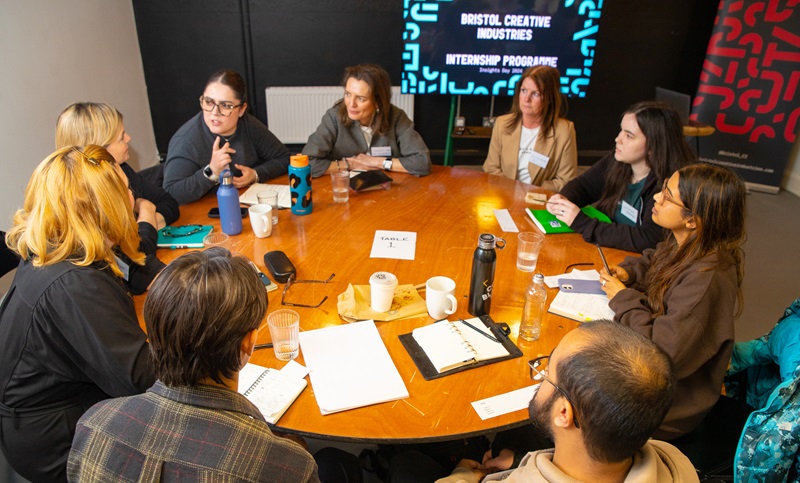
Clare Leczycki, Bristol Creative Industries Internship Programme manager, explains the process for selecting this year’s cohort:
“Our aim was to make the application process as accessible and open as possible, to give the candidates different scenarios to share their skills and personality. To apply, candidates could share a short video, audio or written piece to illustrate why they were interested in participating in the programme and what they hoped to gain from it. We had over 60 applications for eight placements so it shows there is a lot of interest from young people wanting to work in the creative sector.
“Once applications closed, we held an insights day at the brilliant Gather Round workspace in St Paul’s, Bristol. This was a chance for the host agencies to meet the potential candidates, pitch their internship offers and share more about the nature of their business. We also ran an informal Q&A session for everyone to learn more about each other and the different job roles available in the agency world.
“From here, we shortlisted candidates for the formal interview stage during which we explored each young person’s skills and areas of interest to help us with the selection process. Having a two-part interview process allowed us to see the candidates in a variety of settings and learn more about them, which also helped with the matching process.
“Working in partnership with the team at Babbasa is a key part of our recruitment process. The organisation supports young people from underrepresented groups who are looking to pursue their professional ambitions, by providing them with employment support, such as mentoring, CV writing and interview preparation, to help them achieve their aspirations.
“The Bristol Creative Industries Internship Programme, in partnership with the OurCity2030 Pathway into Creative & Tech, is an innovative example of how creative businesses can come together to offer opportunities to young people from ethnic minority and low income households.
“We would like to thank our interview panel Daniel Palmer, Marissa Lewis-Peart and Alli Nicholas for taking the time to meet all of the candidates. This was no small task. Their energy and insights were integral in making the selection process as smooth and effective as possible.
“In order to prepare for this year’s cohort, we have spent the last three months onboarding the host businesses with a variety of training sessions including equity, diversity and inclusion training from Babbasa, mental health training from Bianca Jones at Empower Develop People, and neurodiversity training from Devon Lowndes at Self Agency.
“Ensuring the workplaces are ready to welcome a young person and provide a meaningful placement is a key priority for our programme. Agency life can be pretty hectic and fast-paced, so taking time to consider the experience (onboarding/offboarding, bespoke work plan, mentorship and feedback) is integral to our internship offer. The eight interns have landed roles in content creation, marketing, press and PR, graphic design and strategy.
“The programme brings huge benefits to everyone taking part. We aim to provide the interns with a positive and enriching work placement, while the BCI team and host businesses have the opportunity to learn from the young people. Having different perspectives in the room brings fresh energy, innovation and new ideas.
“It’s a challenging time for many businesses so we are extremely grateful that the participating agencies are willing to invest time and money to support the next generation of creative talent from under-represented backgrounds.”
The agencies and Bristol Creative Industries members participating in the programme are:
Thanks also to Oakwood, Sunhouse Creative and Aer Studios for sponsoring the programme, and to Boomsatsuma and Gather Round as our venue sponsors.
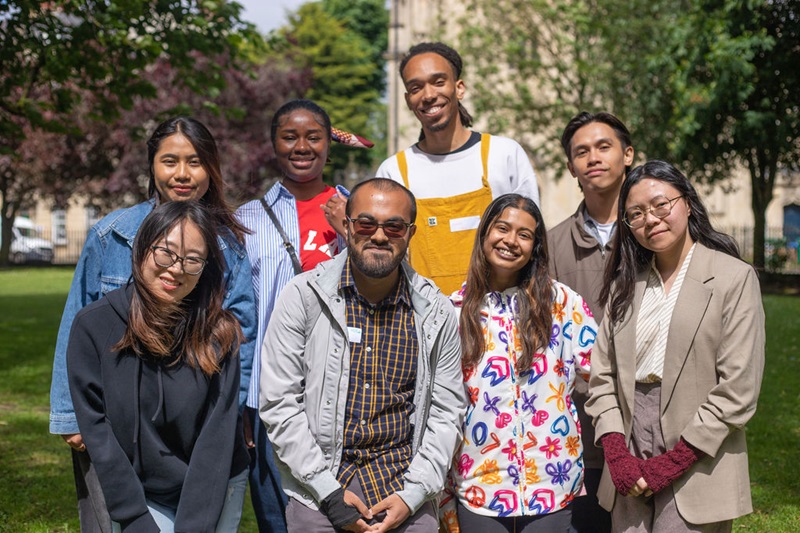
The interns taking part in the 2024 programme are:
Read bios for the interns here.
Some of the interns explain what they hope to get out of the programme:
Kaden Gardner:
“Marketing and PR is an area of work that I have been interested in for a while, and is becoming more important with video work in recent years. I hope to gain some knowledge within this career path, and hopefully advance my videography skills as well.”
Inaz Hussain:
“I want to make more connections in the industry and learn about how the whole creative development process in order to establish myself as a multidisciplinary artist. I would love to establish a company or space to help bridge the gap for people to break into the creative industry without the barriers I faced.”
Wheri Dumuje:
“I hope to become a designer who helps everyone have equal access to the same services and throw light through research on areas that are often overlooked.”
Elma Hossain:
“I hope to become more confident in the skills I excel at, what roles interest me and build a solid network of people who have similar interests and goals as me. I’m also looking forward to making good friends and enjoying a great experience!”
Fyonh Bui:
“I hope to gain valuable skills and knowledge, become a reliable professional, inspire and guide junior designers in the future.”
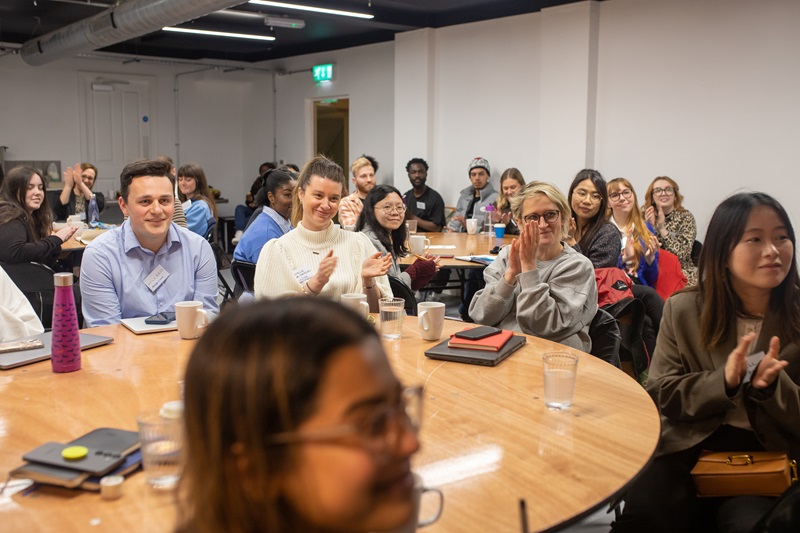
Representatives of the host businesses explain why they are taking part in the programme:
Liam Britnell, Ambitious PR:
“We are excited and proud to be one of the agencies participating in this year’s BCI Internship Programme. We saw last from last year’s cohort the impact that the placements had, and the opportunities it offered to some amazing talent from across the city, so we knew we had to be part of it this time around. We are very much looking forward to welcoming our first placement to the Ambitious PR office.”
Chloe Cottle-Watkins, Armadillo:
“The BCI Internship Programme was a great experience for Armadillo last year. We hired two of the interns from the programme on a permanent basis, and they’ve both been excellent additions to our team.
“We absolutely recognise the benefits that having a diverse workforce has, not only on our business but on the creative industry and community as a whole. We’re proud to play even a small part in helping work towards that.
“Having met some of this year’s interns already, we can see so much potential waiting to be uncovered, and we’re really excited to witness the successes that will no doubt come out of this cohort.”
Alex Rife, The Collaborators:
“The Collaborators has always been about people first, so it’s natural that we want to help nurture young talent. We have a (borrowed) saying that “none of us is as smart as all of us”, so we’re excited to bring different perspectives into our business.
“We’re so grateful to Bristol Creative Industries and Babbasa for helping us to do this in a way that’s about driving real change in the wider creative industry, rather than feeling like a one-off tokenistic gesture. We’re delighted to be part of the programme and looking forward to getting to know this year’s cohort better.”
Abi Sargant, Taxi Studios:
“We are thrilled to be taking part in this year’s Bristol Creative Industries Internship Programme, helping to shape a brighter future for the creative industries.
“We are looking forward to supporting our interns and nurturing their talent, all while gaining valuable insights and growing from the experience ourselves!”
Image credit: Big thanks to Sham Ahmed for capturing the brilliant images used in this post. Follow @shamphat on Instagram.
We are delighted to announce that new directors have been appointed to the Bristol Creative Industries board.
The five individuals will deliver additional strength and depth to the board which will hugely benefit Bristol Creative Industries, our members and the wider creative sector in the south west.
They bring a host of skills and experience including digital marketing, film production, CRM, data analysis, website marketing and creative industry education.
As we said in our new year message at the start of 2024, driving value for Bristol Creative Industries members is our top priority, and we remain committed to creating opportunities for our community to learn, connect and grow their businesses.
To continue with this mission, we have key focuses that the new board directors will help us deliver thanks to their excellent expertise and contacts. They will contribute directly to:
Our priorities also include the BCI Talent Programme which supports the next generation of diverse talent in the creative industries and is currently open for sponsorship opportunities.
The appointment of the five new board directors follows Lis Anderson and Heather Wright becoming co-chairs of BCI.
Heather Wright, co-chair of Bristol Creative Industries, said:
“We are delighted to welcome these uniquely talented, inspirational and hardworking industry leaders who have stepped up for BCI and for our sector. They will strengthen our team and make it possible for us to achieve our ambitions for members.”
Joining Lis Anderson, Heather Wright, Gail Caig, Marissa Lewis-Peart, Julian Davis and Steven Coombe on the Bristol Creative Industries board are:

Adam Millbank brings over 16 years of commercial film production experience, serving as a founding director of B Corp registered companies JonesMillbank and Nine Tree Studios.
With his roots in documentary filmmaking, Adam has honed a talent for uncovering the essence of stories, establishing profound connections with his subjects. While he remains a practitioner, he also dedicates significant time to nurturing relationships with agencies and brands, earning him a reputation as a trusted partner in the industry.
Adam now collaborates with globally recognised brands, leveraging his expertise to drive innovative projects.
He maintains a keen interest in the intersection of education and creativity, aiming to foster greater connectivity within the Bristol creative industries around film and video and create a space for collaboration through Nine Tree Studios.
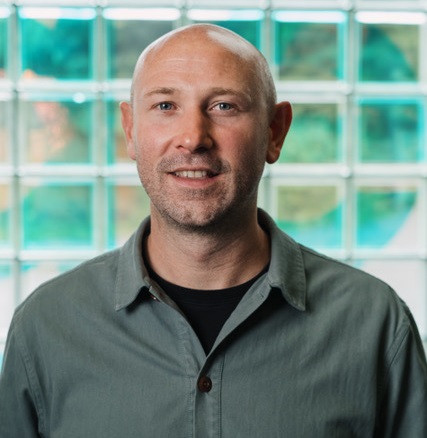
Tom Harber is an experienced creative agency leader specialising in digital experiences and creative technology solutions.
Tom has held leadership positions in industry leading creative agencies across both the UK and Australia that have be recognised at prestigious awards including Cannes Lions, BIMA and The Effies. Tom eventually landed back in the South West to head up creative technology studio, Aer Studios.
Proudly B Corp Certified, Tom and his team have been ranked in the top 100 best workplaces in the UK and have recently been appointed to the BBC UX Design roster as the only agency representing the South West region.
Tom’s passion is in creating meaningful digital experiences that have a positive impact on people and planet. He believes that bringing the creative and technology sectors closer together can have a huge benefit to the South West.
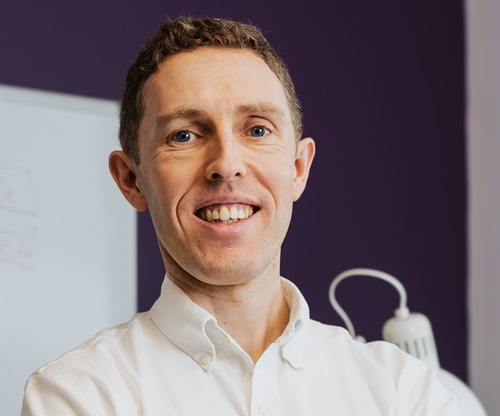
Tom Bowden-Green‘s experience combines senior consultancy (10+ years) and academic leadership (10+ years), designing and delivering training to support business development and career growth in marketing. His current focus is on bringing together regional and academic expertise to support business growth within the creative industries.
Tom studied his PhD at the Digital Behaviour Lab at University of Bath School of Management. His research and teaching now focuses on applying psychology to creative processes.
His recent work at Bristol Business School includes investigating behaviour change with Bristol City Council, researching the Bristol brand with Visit West, and understanding the effectiveness of social media advertising.
Tom created and led the MSc Digital Marketing at UWE Bristol and led several successful Digital Marketing Bootcamps. He co-hosts the The Digital Behaviour Podcast.
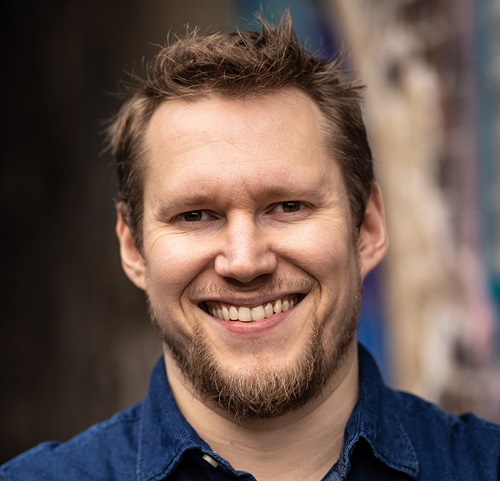
David Darke is the co-founder and operations director of Atomic Smash, a website performance agency based in Bristol, specialising in optimising WordPress, WooCommerce and Shopify.
Since its inception in 2010, Atomic Smash has prided itself on a caring team culture, emphasising continuous learning, creativity, and problem-solving. In this role, he has been recognised for kindness in leadership by being nominated as a Kindness Leadership Leading Light.
David’s approach to business reflects a deep understanding of the web’s potential to transform how companies and individuals communicate and conduct business.
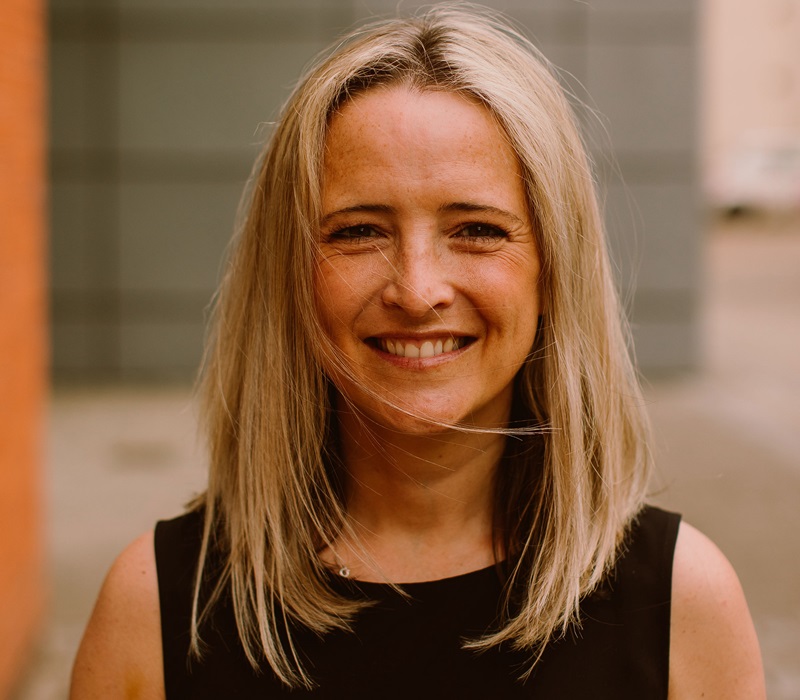
Kate Sikora is the co-founder and managing partner of Noble Performs, a digital performance marketing agency based in Bristol renowned for helping organisations achieve remarkable results.
Highly commended as the IOD Director of the Year 2023 and serving as a Taan European Governor, Kate is committed to driving excellence and innovation in the digital marketing landscape.
Beyond her professional endeavours, Kate finds joy in family life, practicing yoga, and exploring new culinary creations in the kitchen.
How to use language to foster stronger, happier, more productive relationships.
Words: Simeon de la Torre, SIM7.
The language that an organisation uses in its content, copywriting and comms influences not just how it is perceived, but how it makes audiences feel. It’s a complex, nuanced arena, but there are a handful of golden rules to remember around using brand language that’s appropriate and inclusive.
First up: what’s DEI?
Diversity, Equity, and Inclusion (DEI) aims to make everyone within an environment, regardless of race, ethnicity, religion, ability, gender or sexual orientation, feel supported and welcome.
Why is it better to use inclusive language?
According to Deloitte, companies that embrace inclusivity and inclusive language have 22% lower turnover rates, 22% greater productivity and 27% higher profitability. Externally, those companies have 39% higher customer satisfaction.
Rule #1 Avoid certain ways of identifying people
Only use race, gender, gender identity, ability, age, sexual orientation, etc. to identify people when strictly necessary, otherwise doing so can draw attention to something about someone’s characteristics that might make them feel different or excluded.
Rule #2 Use people-first language
People-first language prioritises the individual. This is an especially useful point to remember when talking about people who have disabilities.
For example, it’s better to say ‘a person with a disability’ than ‘a disabled person’. The former implies that the disability is a secondary characteristic rather than a defining one. But as mentioned in #1, it’s best to simply avoid mentioning disability unless relevant or strictly necessary.
There are a few exceptions to this point. The deaf community, for instance, generally prefers the term ‘deaf person’ to ‘person with deafness’. If in doubt, it’s best to ask.
Rule #3 Be wary of connotations
Terms such as ‘sexual preference’ or ‘preferred pronouns’ can be problematic. ‘Preference’ implies choice, and that can create a false impression. It’s best to err on the side of caution and use the terms ‘sexual orientation’ and ‘pronouns’ instead.
Rule #4 Avoid inappropriate references
Try to avoid using terms such as ‘bipolar,’ ‘OCD,’ ‘ADHD’ or ‘ASD’ as metaphors, especially in a jokey context. These are real disabilities and disorders. Using their names to refer to things they aren’t can offend people who have them.
Rule #5 Use gender-neutral language
Yes, you may often use language with a specific audience in mind, but pronouns are generally best avoided.
When making a hypothetical point – ‘if he or she went for a walk’, for example – the ‘he or she’ clause is unnecessary, and including it can make non-binary, gender non-conforming or genderqueer folks feel excluded.
When in doubt or when using a pronoun is necessary, ‘they’ is a good choice. It’s gender-neutral and can be used to refer to an individual or a group, so has all bases covered.
Rule #6 Avoid universal phrases
Jargon is often best avoided and it’s a good idea to think before using idioms – not all translate well across cultures.
Rule #7 Avoid using your group as the reference group
Using your group as the reference group can imply it’s the norm and that other groups fall outside that norm. Terms like ‘non-white’, for example, imply that white people are the norm and everyone else, a deviation.
It’s best to take care when saying…
Guys
This term is best avoided when speaking to or referencing a group that contains non-male members.
Good alternatives: ‘Folks’, ‘you all’, ‘everyone’, ‘team’.
Girls/ladies/gals
If she’s over 18, she’s an adult. And take care when saying ‘ladies’ and ‘gals’, these terms can be patronizing. Good alternatives: ‘Women’, ‘people’.
Handicap/handicapped
Today, ‘handicapped’ is considered impolite.
Similarly, when talking about people with disabilities, avoid using terms like ‘afflicted by,’ ‘victim of’, ‘suffers from’, and ‘confined to a wheelchair’. ‘Challenged’, ‘differently abled’, and ‘specially abled’ are best avoided too.
Good alternatives: ‘Disabled’, ‘person with a disability’.
You might also consider…
Mentioning pronouns
Including pronouns – he/him, she/her, they/them – in email signatures can help non-binary, transgender and other folk feel more included.
Trigger warnings
If you’re going to publish content that has the potential to trigger people, it’s a good idea to add a trigger warning to that content. Forewarning people about potentially offensive content can help prevent causing offence.
Writing for web accessibility
People with certain disabilities can have difficulty navigating online content. We can all help ensure the content we create is accessible. See our designing for accessibility cheat sheet for useful tips.
Keeping up-to-date
Inclusive language best practice is constantly evolving. Periodic refreshers are a great way to stay up to date. Taking a moment to think about how the language you’re going to use is inclusive often goes a long way, too.
To learn more about creating an inclusive brand, visit https://sim7creative.co.uk/ or get in touch with Sim (he/him): [email protected]
As we outlined in our new year message in January, a key focus at Bristol Creative Industries is boosting workforce diversity in creative businesses and helping to grow the talent pipeline for our members.
Our report, A creative force to be reckoned with: Unleashing the power of Bristol’s creative industries, found that accessing talent with the right skillsets was the biggest challenge facing more than a third of creative businesses in the south west.
It also showed that increasing diversity and inclusion was a significant priority for six in 10 creative firms, but 21% admitted they were struggling to recruit talent from diverse backgrounds, and 48% wanted more help finding diverse employees from underrepresented groups.
In this post, we outline the initiatives in the Bristol Creative Industries Talent Programme which is focused on tackling those challenges.
If you’re not yet a BCI member, join here to take advantage of the member exclusive initiatives.
If you’d like to join us as a BCI Talent Partner, read the final section of this post.
Research shows that diverse teams are more creative problem solvers, bringing fresh perspectives to solutions, against the echo-chamber effect that results when people in a business come from too-similar backgrounds. With a strong focus on diversity and inclusion, employees feel valued and that they belong.
To help Bristol Creative Industries members achieve this, we have partnered with The Hobbs Consultancy to provide on demand equity, diversity and inclusion (ED&I) e-learning.
The CPD certified online course consists of modules to help you bring about positive change in your business, understand the key challenges in the way for different groups, and explore your own biases and how to overcome them.
The training modules take an in-depth look at different diversity and inclusion topics: race, disability, LGBTQ+, neurodiversity, gender (split into female leadership, masculinity, gender identity), age and social mobility in the workplace.
The price of the training for BCI members is £120+VAT. All profits will be ploughed back into our youth engagement activity.
To access this brilliant training opportunity, log into your Bristol Creative Industries account and click on the ‘members’ training’ section.
We have to start engagement at school by raising the profile of the creative sector to a wider and more diverse audience. To do this, we’re developing ways to bring together creative business members and future talent through mentoring.
We are thrilled to have launched a partnership with The Early Careers Foundation (ECF), a social mobility charity that works with young people from low-income backgrounds to ensure that talent and hard work are what determine their career success, not background.
Through its mentoring programme, ECF pairs employees from partner organisations with 16-18-year-olds for monthly hour-long mentoring sessions.
Thanks to our new partnership, BCI members can now become a mentor and support a young person in building their confidence, developing their employability skills and offering invaluable professional guidance.
Applications to become a mentor close on 1 August 2024.
To find out more about how you can get involved, read this post.
Our groundbreaking Bristol Creative Industries Internship Programme with Bristol social enterprise Babbasa launched as a pilot in 2023. It is aimed at young people from diverse backgrounds wanting to gain more insight and real experience in the creative industries.
As well as benefiting the interns, the scheme also educates employers to help them build inclusive workspaces that are ready to welcome young people from low income and underrepresented backgrounds.
Brilliant agencies from the BCI member community stepped up to provide paid placements to a group of fantastic interns during the pilot which resulted in many successes including full time jobs following the placements.
The programme has returned for 2024 with more creative businesses offering a wide range of roles in marketing, public relations, design, branding and advertising.
We recently closed applications from potential interns for the second cohort and were delighted to see an increase in responses compared to last year.
For the latest updates from the programme, keep an eye on our blog and social media (X, LinkedIn, Facebook and Instagram).
We have committed to an annual programme of round tables with key post 16 education providers in the region including colleges, academies and universities.
Our aim is to promote creative careers to staff and career advisers, drive applications to our internship programme and explore how we can promote the creative industries to students already studying.
We also have this regularly updated guide to creative industries-related further and higher education courses in Bristol and Bath to make young people more aware of their options.
By joining the programme as a partner, you’ll help to fund all of our activities that support
underrepresented groups entering the creative industries. Your support is vital to ensure we have a healthy and diverse talent pipeline.
For more details, contact Alli Nicholas, BCI membership and operations manager, at [email protected], or Lis Anderson, BCI co-chair, at [email protected]
Save the date – Thursday May 9, 2024!
Mark your calendars because something exciting is coming your way! If you’re between the ages of 16 and 30, we’ve got an event tailor-made for you. Get ready to dive deep into the pressing issues of climate change and sustainability at our dynamic and engaging gathering.
Here’s a sneak peek of what’s in store:
Interactive Workshops: Prepare to roll up your sleeves and get involved in hands-on workshops where you’ll learn practical skills like upcycling to make a positive impact on the environment.
Open Discussions: Your voice matters! Join in on open discussions where you can share your thoughts, ideas, and concerns about climate change in a welcoming and inclusive environment.
But wait, there’s more! This event isn’t just about sharing information; it’s about empowerment. We’re committed to making climate action accessible to everyone, especially young people from lower-income and marginalised communities.
Get ready to be inspired, connect with like-minded individuals, and take meaningful steps toward a sustainable future. Stay tuned for more details coming soon!
Together, let’s make a difference.
For ways to support and get involved, you can get in contact via email [email protected]
Register your interest (16-30)
Bristol Creative Industries is thrilled to launch a partnership with The Early Careers Foundation (ECF), a social mobility charity that works with young people from low-income backgrounds across the country, to ensure that talent and hard work are what determine their career success, not background.
Social inequality is a huge problem in the UK, with family wealth at birth (not IQ, race, or gender) still the most accurate predictor of future financial success. The Early Careers Foundation is committed to ensuring that talent, not background, is what determines a young person’s career success.
One of the Foundation’s initiatives is its Mentoring Programme, which pairs employees from corporate partner organisations with 16-18-year-olds from the organisation’s school partners for monthly hour-long mentoring sessions.
Thanks to this new partnership, we’re thrilled that Bristol Creative Industries members can volunteer to be a mentor to one of these high potential young people using the Foundation’s expertly designed resources to support building their confidence, developing their employability skills and offering invaluable professional guidance.
The Foundation does the leg work – covering the cost of your enhanced DBS check, running comprehensive training sessions and providing expertly designed resources to structure each session – so that the only ‘eligibility’ criteria is that you are enthusiastic, happy to share learnings from your own professional experience and crucially, committed to at least 10 months of mentoring sessions.
Mentor applications open on 2 April and close on 1 August. You can get started TODAY. Read through the ECF Mentor Prospectus Flyer (2024-25) and apply directly through this link (this can also be found at the bottom of the prospectus).
Please note that you need to be a Bristol Creative Industries member to take advantage of this exciting opportunity. If you’re not a member, join today.
